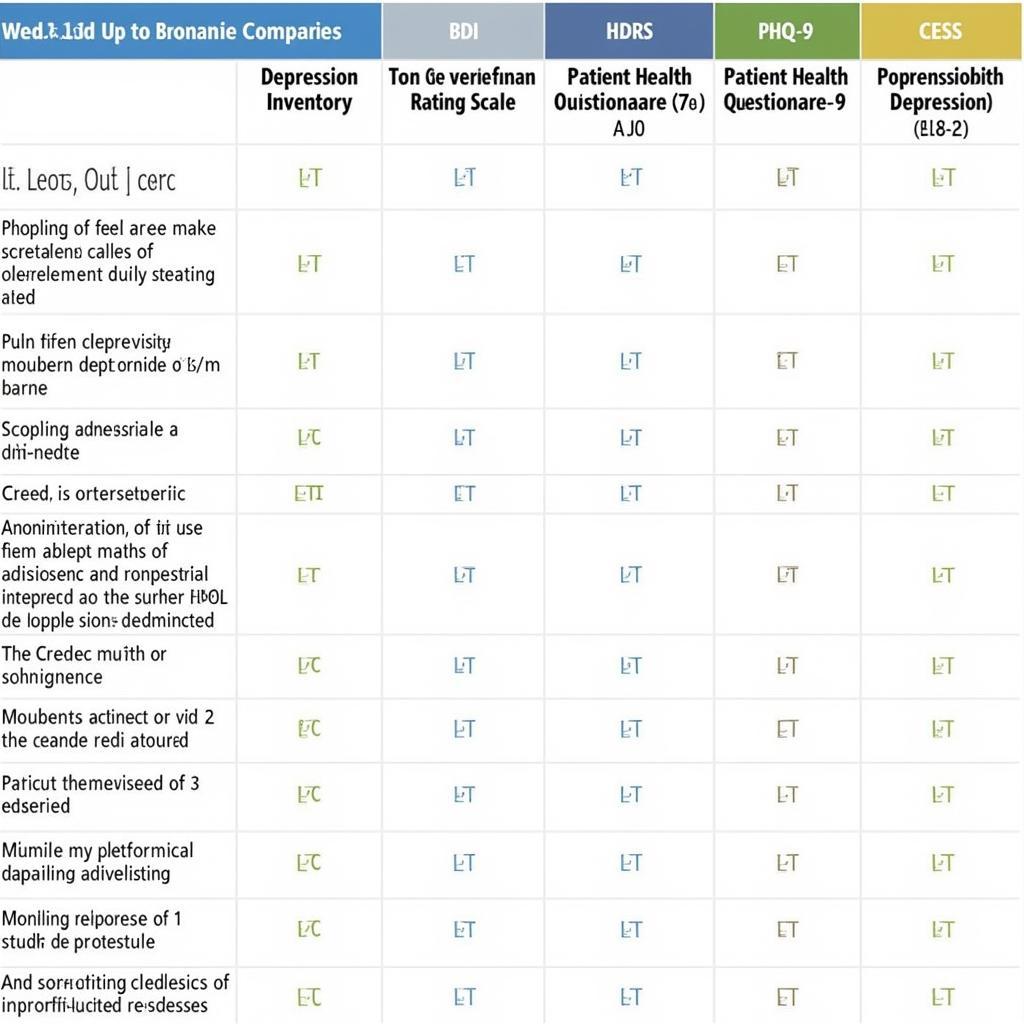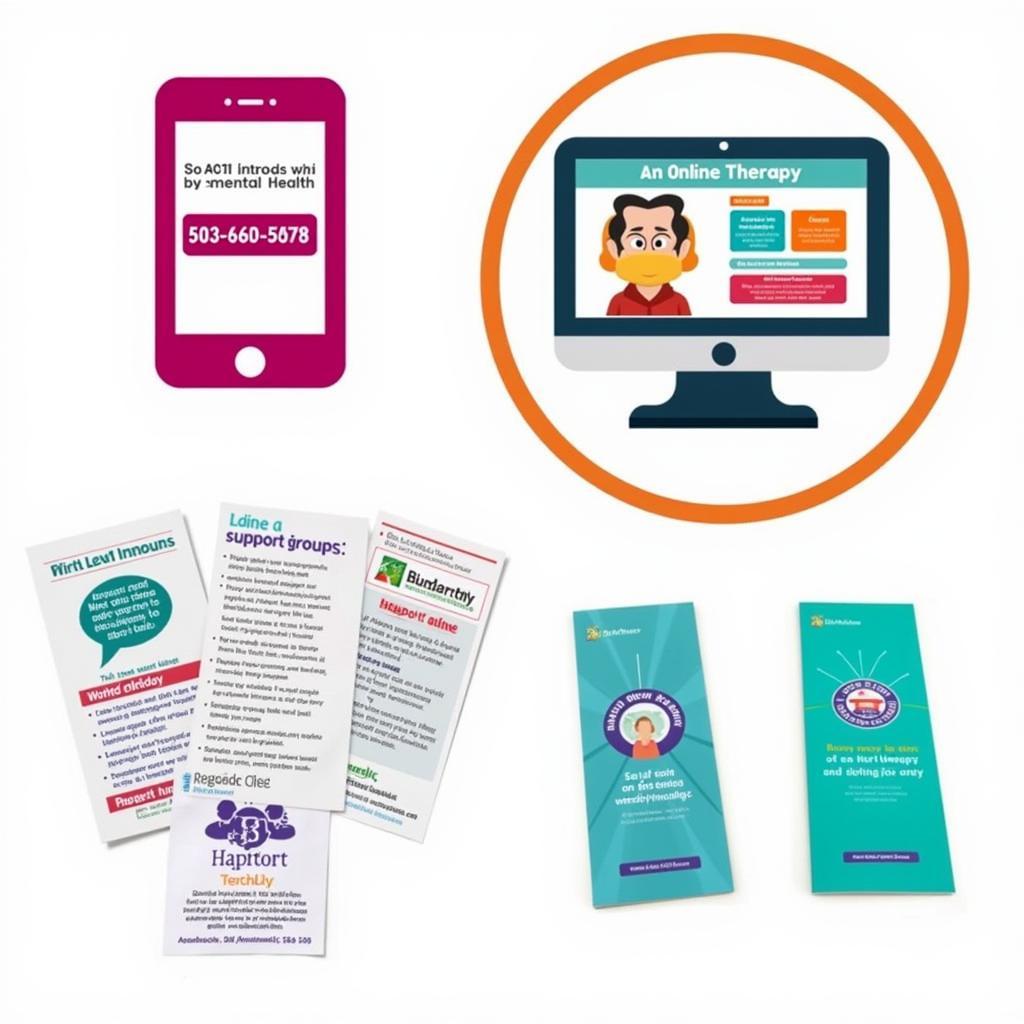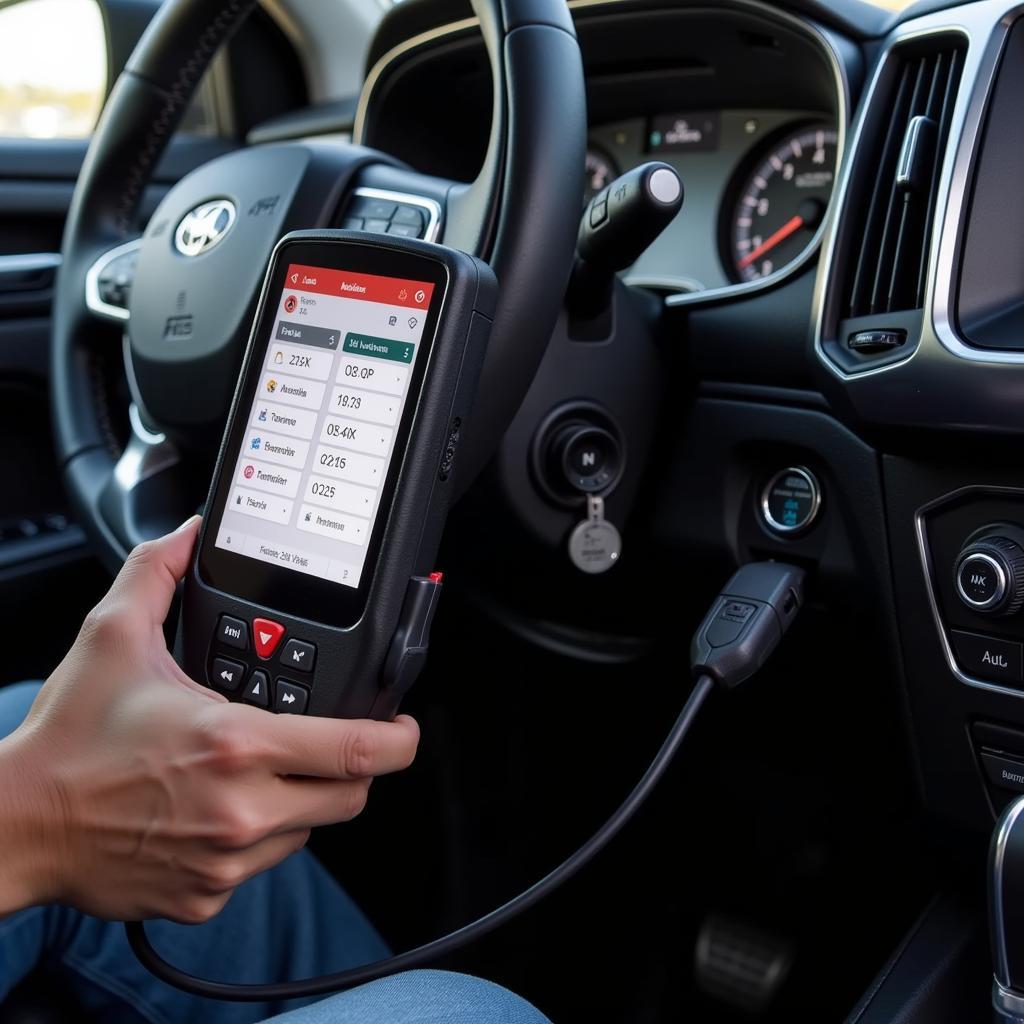Diagnostic Tool For Depression Is The starting point for effectively addressing this pervasive mental health challenge. Understanding the available tools, how they are used, and their limitations is crucial for both individuals experiencing symptoms and professionals seeking to provide support. This article aims to clarify the landscape of depression diagnostic tools and empower readers to navigate the path toward better mental health.
While diagnostic tools for depression are essential, it’s important to understand that they are just one piece of the puzzle. A thorough evaluation by a qualified mental health professional is always necessary for accurate diagnosis and treatment. Similar to diagnostic tools for childhood depression, adult diagnostic tools aim to identify symptoms and patterns.
What Are Depression Diagnostic Tools?
Depression diagnostic tools are standardized questionnaires, scales, and interviews designed to assess the presence and severity of depressive symptoms. These tools provide a structured framework for evaluating an individual’s emotional, cognitive, and behavioral patterns, aiding clinicians in making informed diagnoses. They can also be used to track progress over time and measure the effectiveness of treatment interventions. It is crucial to remember that these tools are aids in the diagnostic process, not definitive diagnostic instruments in and of themselves.
These tools often explore various facets of depression, like changes in sleep patterns, appetite, energy levels, mood, and concentration. A comprehensive assessment helps determine the specific type and severity of depression, enabling tailored treatment plans. This bears resemblance to how is the beck depression inventory a diagnostic tool, which is used to assess depression severity.
 Depression Diagnostic Tool: Questionnaire
Depression Diagnostic Tool: Questionnaire
How Diagnostic Tool For Depression Is The Foundation of Treatment
Diagnostic tool for depression is the cornerstone upon which effective treatment is built. By providing a clear picture of an individual’s symptoms, these tools enable clinicians to develop personalized treatment strategies. This may involve psychotherapy, medication, lifestyle changes, or a combination of approaches. The insights gleaned from these tools are also invaluable in monitoring treatment response and making necessary adjustments along the way. The right diagnostic tool empowers both the individual and the clinician, fostering a collaborative approach to recovery.
The information gathered from these tools is invaluable for tracking progress. It’s like having a roadmap, guiding both the patient and the professional. Just as a diagnostic tool for children aids in understanding developmental issues, these tools provide insights into the specific nature of depression.
Commonly Used Depression Diagnostic Tools
Several standardized tools are frequently employed in the diagnosis of depression. These include:
- The Beck Depression Inventory (BDI): A self-report questionnaire assessing the severity of depressive symptoms.
- The Hamilton Depression Rating Scale (HDRS): A clinician-administered interview evaluating the severity of depression.
- The Patient Health Questionnaire-9 (PHQ-9): A brief self-report tool commonly used in primary care settings.
- The Center for Epidemiologic Studies Depression Scale (CES-D): A self-report questionnaire measuring depressive symptoms in the general population.
Dr. Emily Carter, a renowned psychiatrist, emphasizes, “The choice of diagnostic tool depends on the specific context and the individual’s presentation. Each tool has its strengths and limitations.”
 Comparing Depression Diagnostic Tools
Comparing Depression Diagnostic Tools
Diagnostic Tool for Depression: Limitations and Considerations
While diagnostic tools are valuable, they also have limitations. Self-report measures can be influenced by an individual’s perception and willingness to disclose information. Clinician-administered interviews can be subjective and influenced by the interviewer’s interpretation. Furthermore, cultural factors can influence the expression and reporting of depressive symptoms. Therefore, it is essential to consider these limitations and interpret the results of diagnostic tools within the broader context of an individual’s clinical presentation. A thorough clinical evaluation, including a comprehensive history and mental status examination, remains crucial.
This is comparable to hypnosis-diagnostic tools help diagnose behavioral problems, where careful interpretation is key. Clinical judgment remains essential.
 Clinical Evaluation for Depression
Clinical Evaluation for Depression
Conclusion: Diagnostic Tool for Depression Is The First Step
Diagnostic tool for depression is the initial step in understanding and addressing this complex mental health condition. By providing valuable insights into the nature and severity of symptoms, these tools empower individuals and clinicians to embark on a journey toward recovery. While these tools are invaluable aids, they are most effective when used in conjunction with a comprehensive clinical evaluation by a qualified mental health professional. Remember, seeking help is a sign of strength, and the path to recovery begins with understanding. Contact ScanToolUS at +1 (641) 206-8880 or visit our office at 1615 S Laramie Ave, Cicero, IL 60804, USA for any assistance.
 Mental Health Support Resources
Mental Health Support Resources
If you’re looking for a comprehensive at-home solution, consider an at home all in one medical diagnostic tool. It can provide valuable information to share with your healthcare provider.


